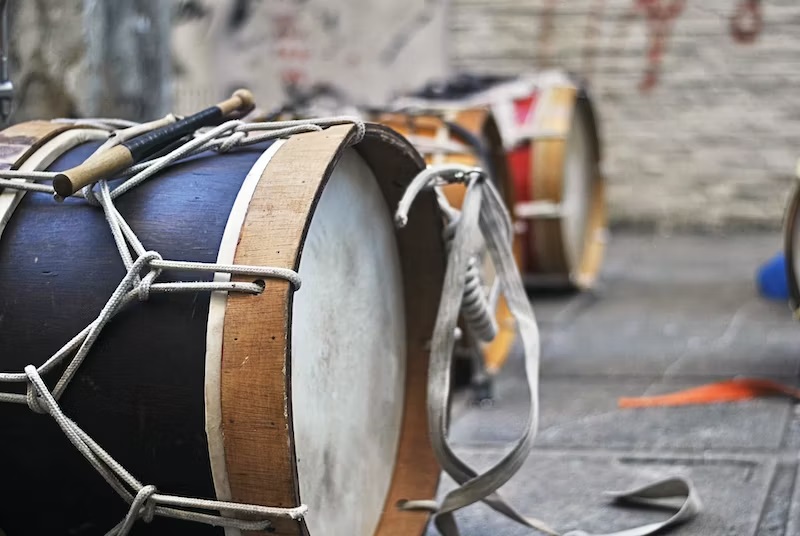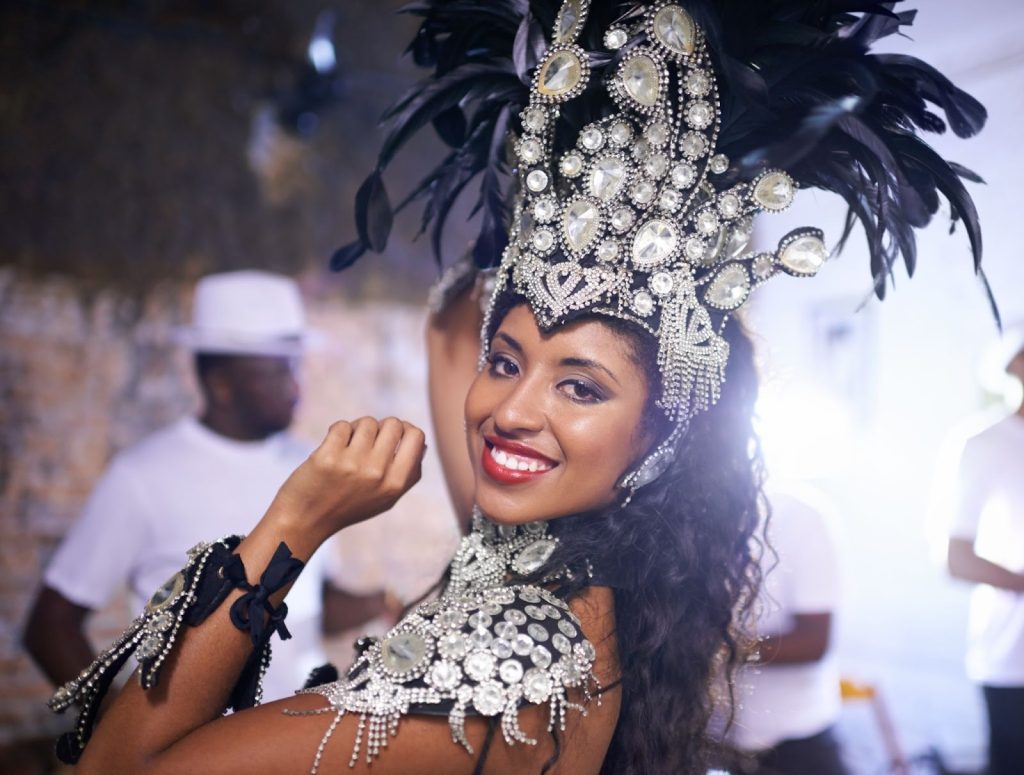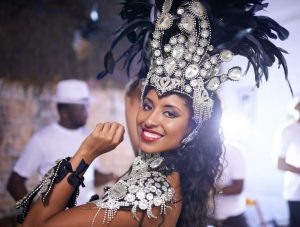Brazil’s music, a vibrant hub of many customs and rhythms, reflects the country’s unique cultural fabric. Examining Brazilian music traditions, you explore the colourful realms of Forró, Bossa Nova, and Samba. With its beats and histories, each of these genres contributes significantly to the musical character of Brazil. Not only are Bossa Nova’s calming melodies and Forró’s upbeat spirit a representation of Brazilian culture but so is Samba’s contagious vitality. Journey to explore the core of these cherished musical traditions as you voyage into Brazil’s rhythmic spirit.
Table of Contents
History of Brazilian Music

Brazil’s musical environment has changed, blending African, European, and indigenous influences throughout the ages. New musical genres were created as European harmonies and native beats combined with African rhythms that the captives carried with them. In colonial times, European dances and African rhythms fused to create early forms of Brazilian music. This rich tapestry was further enriched by introducing various instruments, like the cavaquinho and the bandolim, which added new textures to the music. The 20th century saw the rise of radio and recording technology, crucial in spreading these diverse musical styles throughout Brazil and beyond, fostering a national musical identity. As you plan your musical journey through Brazil, follow the link to ensure you have all the necessary travel documentation, allowing you to explore this history and its vibrant expressions without any hindrances.
Samba

Rio de Janeiro’s Afro-Brazilian neighbourhoods gave rise to samba, a fundamental aspect of Brazilian music culture. Brazil’s national identity is symbolised by this genre, which has roots in African dance and rhythm. More than just a musical genre, Samba represents a cultural movement, highlighted by the globally famous Carnival. Its lively beats, driven by drums and tambourines, create an environment of festivity and joy, embedding Samba deeply into Brazil’s everyday life and celebrations. The genre has given rise to various sub-genres, each with its unique rhythm and style, such as Pagode and Samba-Reggae, demonstrating the evolving nature of this dynamic music form. Community-driven Samba schools are instrumental in preserving this rich tradition at the core of Rio de Janeiro. They offer educational sessions and are vital in orchestrating the grand parades of Carnival, a spectacle that draws an international audience.
Bossa Nova

A more sombre, reflective tone defines Brazil’s “new wave,” or Bossa Nova, which initially emerged in the late 1950s. It merges Samba’s rhythm with jazz’s coolness and offers a silky, melodic sound. Icons like João Gilberto and Antônio Carlos Jobim popularised Bossa Nova, with hits like “The Girl from Ipanema” achieving worldwide acclaim. Its themes often explore love, nature, and reflection, providing a tranquil counterpoint to Samba’s exuberance. Bossa Nova’s influence extends beyond Brazil, shaping jazz and global popular music. In Brazil, intimate performances in small clubs and cafés are perfect for appreciating its refined elegance, often highlighted by acoustic guitar and gentle percussion.
Forró

Originating from Northeast Brazil, Forró is an energetic, accordion-centered genre symbolising festive spirit and community. It combines various European dance styles into a unique, upbeat rhythm. The associated dance is close and spirited, reflecting Brazilian warmth and hospitality. Instruments like the zabumba drum and triangle contribute to its distinct sound, enhancing its rustic appeal. Forró transcends music, embodying dance, singing, and storytelling, preserving regional oral traditions. It shines during the São João Festival, a rural life celebration, where communities unite in a colourful display of music, dance, and heritage.
Concerts & Music Festivities

The many festivals and concerts honouring Brazil’s rich musical history exemplify the country’s well-known and vibrant music culture. Events like the São Paulo Jazz Festival and Rock in Rio emphasise Brazil’s unique blend of modern and international music forms. The Salvador Carnival, a spectacle of colour and rhythm, further displays this rich variety. The Virada Cultural in São Paulo and Salvador’s Festival de Verão are annual events that draw large crowds, featuring a blend of local and international acts. The Festa Junina, which features regional dances and songs that speak to Brazil’s cultural heritage, offers a rare chance for people who enjoy traditional music to immerse themselves in history-rich experiences. These celebrations serve as both a source of entertainment and an essential means of maintaining and advancing the musical traditions fundamental to Brazilian culture.
Immersive Experiences in Brazilian Music

Brazil provides numerous opportunities for hands-on musical experiences. Tourists can join Samba or Forró dance classes, engage in music-filled bars, or participate in dance-focused tours. Cultivating a passion for classic Brazilian instruments like the pandeiro and berimbau, cultural centres in the busy streets of Rio de Janeiro and Salvador provide workshops to beginners. A vibrant “roda de samba” session is another event that many neighbourhoods host. This event brings people together to enjoy music and fosters community and celebration. By engaging in these activities, tourists can become more deeply acquainted with Brazil’s dynamic culture while being entertained and learning more about its rich musical legacy.
The Universal Language of Brazilian Music

Brazilian music is a unifying global language that links people worldwide through its captivating rhythms and heartfelt tunes. The way musicians from all genres and nations use its vivid sounds in their music is proof of its widespread effect. International collaborations frequently spotlight Brazilian music, blending it with other musical traditions to forge innovative styles. In Brazil, this worldwide recognition is a source of pride, with local musicians integrating world music elements into their creations, fostering an ongoing intercultural exchange. Moreover, this fusion of styles has led to new music festivals and events that celebrate this cross-cultural mix, further solidifying Brazil’s position on the world music stage. These developments enrich the global music scene and reinforce Brazilian music’s universal appeal and adaptability.
Brazil’s musical heritage, a vibrant fusion of varied roots and profound cultural depth, provides an insightful glimpse into the nation’s spirit. The dynamic pulse of Samba, the calming strains of Bossa Nova, and the lively ambience of Forró vividly express the country’s vitality, strength, and creative flair. Engaging in this rich musical landscape, whether by experiencing vibrant festivals, joining dance workshops, or relishing the tunes in cosy local hangouts, leaves a lasting impression that lingers well beyond the final melody.
